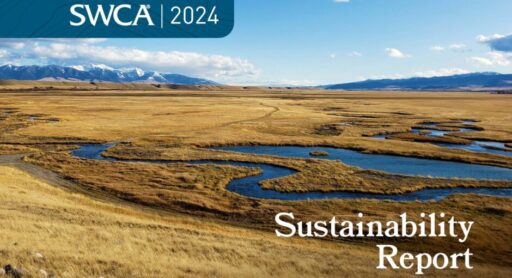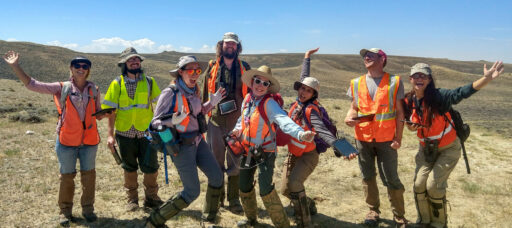2025
Comparably’s Best Company Outlook
* Providing engineering services in these locations through SWCA Environmental Consulting & Engineering, Inc., an affiliate of SWCA.

From the experts we hire, to the clients we partner with, our greatest opportunity for success lies in our ability to bring the best team together for every project.
That’s why:

At SWCA, sustainability means balancing humanity’s social, economic, and environmental needs to provide a healthy planet for future generations.

SWCA employs smart, talented, problem-solvers dedicated to our purpose of preserving natural and cultural resources for tomorrow while enabling projects that benefit people today.

At SWCA, you’re not just an employee. You’re an owner. Everyone you work with has a stake in your success, so your hard work pays off – for the clients, for the company, and for your retirement goals.
USFWS Revised Mitigation Policy and ESA Compensatory Mitigation Policy
Amanda Glen is SWCA’s natural resources technical director for biological services and provides strategic guidance on permitting and compliance for matters involving protected wildlife, plants, and habitats. Currently managing a national practice, she has more than 25 years of consulting experience with an emphasis on the Endangered Species Act (ESA) and how compliance with the ESA influences other regulatory programs. Her wealth of experience pertaining to endangered species issues includes research, permitting, consultations, status reviews, and conservation planning. Her experience includes negotiating compliance solutions for critically imperiled species facing potential determinations of jeopardy or adverse modification of designated critical habitats. She has led efforts to delist species no longer requiring the protections of the ESA when supported by sound science, and has been involved in voluntary conservation planning to help preclude the need to list species. Amanda frequently presents at regional and national conferences on matters related to the ESA, including new listings, regulatory and policy changes, and trends in compliance strategies.

Amanda Ehrenkrantz is the Pacific Islands Office Director and a wildlife ecologist with experience conducting a wide range of field protocols, as well as writing National Environmental Policy Act (NEPA)- and Endangered Species Act (ESA)-compliant documents and technical reports. She has authored Biological Assessments (BAs) and Habitat Conservation Plans (HCPs) for a range of project types and covered activities. In the field, she is proficient at leading and conducting habitat assessments and surveys for bats, big game, small mammals, prairie dogs, and raptors, including threatened, endangered, and sensitive wildlife species. Ms. Ehrenkrantz has worked on a range of project types, including energy development (wind, solar, coal, oil, and gas), transmission, large- and small-scale housing development, airports, and roads.



The U.S. Fish and Wildlife (USFWS) has revised its Mitigation Policy and Endangered Species Act Compensatory Mitigation Policy. These two policies influence how the USFWS will consider and address mitigation goals and standards. The revised policies adopt Obama-era policies that were enacted in 2016 and later repealed in 2017, with some modifications based on previous legal challenges. Project proponents and species conservation bank sponsors seeking to use or create mitigation will have new standards and obligations under these revised policies. The USFWS will apply these revised policies to determine what types of actions qualify as mitigation.
In practice, the new policies will make the species mitigation process similar to the Compensatory Mitigation for Losses of Aquatic Resources (33 Code of Federal Regulations Parts 325 and 332, and 40 Code of Federal Regulations Part 230) (73 Federal Register 19594, April 10, 2008).
Reach out to your project manager or one of SWCA’s regulatory specialists for more information, insights, and strategies to keep your projects on track.